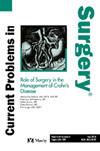Prognostic value of lymph node dissection count in esophageal squamous cell carcinoma: a systematic review and meta-analysis
IF 2.3
3区 医学
Q2 SURGERY
引用次数: 0
Abstract
Background
: For esophageal squamous cell carcinoma (ESCC), the role of extended LND is still controversial regarding long-term survival and complication. This study aimed to explore the role of extended lymph node dissection (LND) count in ESCC.
Methods
: A systematic literature search was conducted including Web of Science, MEDLINE and Embase. Pooled hazard ratios (HRs) and 95% confidence intervals (CIs) were calculated via fixed-effects or random-effects model to assess the pooled survival effect of different lymph node dissection count. Beside, short-term outcomes were analyzed.
Results
: A total of 34 studies containing 26893 patients were included for analysis. For overall survival (OS) analysis, increased LND group was associated with significantly favorable OS (HR=0.69, 95% Cl: 0.63-0.77, P<0.00001), while viewing LND count as a continous variable, the pooled analysis also demonstrated significantly better OS (HR=0.98, 95% Cl: 0.98-0.99, P<0.00001) with increased LND. Compared with low LND patients, increased LND were beneficial for disease-free survival (HR=0.51, 95% Cl: 0.28-0.94, P=0.03), while no significant difference was observed in cancer specific survival (HR=0.80, 95% Cl: 0.57-1.12, P<0.00001) . Analysis of patients received neoadjuvant therapy revealed that high LND group was also related to better OS (HR=0.70, 95% Cl: 0.53-0.92, P<0.00001) than low LND group. No statistical differences were observed between low and high LND groups regarding complications (HR=1.34, 95% Cl: 0.95-1.87, P=0.09).
Conclusion
: This meta-analysis revealed increased lymph node dissection was significantly favorable for overall survival of ESCC patients without increasing postoperative complications, which was also applicable for neoadjuvant-treated patients.
食管鳞状细胞癌淋巴结清扫计数的预后价值:一项系统回顾和荟萃分析
背景:对于食管鳞状细胞癌(ESCC),延长LND的作用在长期生存和并发症方面仍然存在争议。本研究旨在探讨扩大淋巴结清扫(LND)计数在ESCC中的作用。方法:系统检索Web of Science、MEDLINE、Embase等相关文献。通过固定效应或随机效应模型计算合并风险比(hr)和95%置信区间(ci),评估不同淋巴结清扫数的合并生存效果。并对短期疗效进行分析。结果:共纳入34项研究,共纳入26893例患者。对于总生存期(OS)分析,LND增加组与显著有利的OS相关(HR=0.69, 95% Cl: 0.63-0.77, P<0.00001),而将LND计数作为一个连续变量,合并分析也显示LND增加显著改善OS (HR=0.98, 95% Cl: 0.98-0.99, P<0.00001)。与低LND患者相比,LND升高有利于无病生存(HR=0.51, 95% Cl: 0.28-0.94, P=0.03),而肿瘤特异性生存无显著差异(HR=0.80, 95% Cl: 0.57-1.12, P<0.00001)。对接受新辅助治疗的患者进行分析发现,与低LND组相比,高LND组也有更好的OS (HR=0.70, 95% Cl: 0.53-0.92, P<0.00001)。低、高LND组并发症发生率无统计学差异(HR=1.34, 95% Cl: 0.95 ~ 1.87, P=0.09)。结论:本荟萃分析显示,淋巴结清扫的增加对ESCC患者的总生存期有显著的好处,且不会增加术后并发症,这也适用于新辅助治疗的患者。
本文章由计算机程序翻译,如有差异,请以英文原文为准。
求助全文
约1分钟内获得全文
求助全文
来源期刊
CiteScore
5.20
自引率
0.00%
发文量
47
审稿时长
18 days
期刊介绍:
Current Problems in Surgery keeps readers up-to-date on the latest surgical advances. Each month, this publication examines a single clinical problem or condition commonly seen by general surgeons. Issues also focus on topics in surgical research and emerging ideas in surgical subspecialties. Current Problems in Surgery is ideal for information too urgent to await book publication, yet too important to be summarized in a brief journal article.

 求助内容:
求助内容: 应助结果提醒方式:
应助结果提醒方式:


